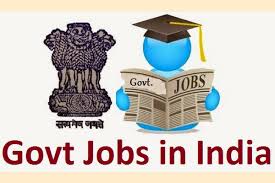Government Jobs in India: An Ultimate Guide!
What is Governmant Jobs?

Government jobs, also known as public sector jobs, are positions within government organizations at various levels—central, state, or local. These jobs are typically open to qualified candidates who meet specific eligibility criteria. Here are some common types of government jobs:
-
- Central / National Level Government Jobs:
-
- UPSC Civil Services: These prestigious positions include roles like Indian Administrative Service (IAS), Indian Police Service (IPS), and other administrative and executive positions.
-
- Central / National Level Government Jobs:
-
- State Government Jobs:
-
- Each state government conducts its own recruitment processes for various positions. These can include jobs in education, health, police, and other departments.
-
- State Government Jobs:
-
- Public Sector Undertakings (PSUs):
-
- PSUs are government-owned corporations or companies. They offer jobs in sectors like engineering, finance, management, and more.
-
- Public Sector Undertakings (PSUs):
-
- Railway Jobs:
-
- Indian Railways, one of the largest employers in the country, offers a wide range of job opportunities.
-
- Railway Jobs:
-
- Bank Jobs:
-
- Public sector banks and financial institutions hire candidates for roles such as clerks, probationary officers, and specialist officers.
-
- Bank Jobs:
-
- Defense Jobs:
-
- The Indian Army, Navy, and Air Force recruit candidates for various positions.
-
- Defense Jobs:
-
- Teaching Jobs:
-
- Government schools, colleges, and universities hire teachers and professors.
-
- Teaching Jobs:
-
- Healthcare Jobs:
-
- Government hospitals, health departments, and medical institutions offer positions for doctors, nurses, and other healthcare professionals.
-
- Healthcare Jobs:
-
- Other Government Organizations:
-
- Various ministries, departments, and agencies at both central and state levels regularly announce job vacancies.
-
- Other Government Organizations:
Why Government Jobs?

Government jobs in India have always been an attractive option for individuals seeking stable and fulfilling employment opportunities. They offer not just a steady income, but also a degree of job security, perks, and benefits that are often unmatched by private sector roles. Let’s dive into why you should consider a career in the government sector:
-
- Job Security: Once you secure a government job, you’re likely to have long-term stability. Unlike the uncertainties of the private sector, government jobs provide a sense of permanence.
-
- Attractive Pay and Benefits: Government employees enjoy competitive salaries, regular pay hikes, and allowances. Additionally, benefits such as health insurance, pension plans, and housing facilities make government jobs financially rewarding.
-
- Work-Life Balance: Government jobs often come with fixed working hours, allowing you to maintain a healthy work-life balance. Say goodbye to late-night emails and weekend work!
-
- Career Growth: The government provides ample opportunities for career advancement. You can climb the ladder through promotions, departmental exams, and specialized training programs.
Types of Government Jobs:

-
- Civil Services: The prestigious Indian Administrative Service (IAS), Indian Police Service (IPS), and Indian Foreign Service (IFS) fall under this category. These roles involve administrative, law enforcement, and diplomatic responsibilities.
-
- Banking and Finance: Public sector banks, RBI, and financial institutions offer positions like Probationary Officers (POs), Clerks, and Specialist Officers. These roles are ideal for finance enthusiasts.
-
- Railways: The Indian Railways is one of the largest employers in the country. From engineers to ticket collectors, there’s a wide range of job opportunities.
-
- Defense Services: Join the Army, Navy, or Air Force to serve your nation. Roles include officers, soldiers, and technical staff.
-
- Teaching and Education: Become a teacher, professor, or researcher in government schools, colleges, or universities.
How to Prepare for Government Exams:

-
- Understand the Exam Pattern:
-
- Start by thoroughly understanding the exam pattern, including the number of sections, subjects, and marking scheme.
-
- Identify which sections carry more weightage and allocate your study time accordingly.
-
- Understand the Exam Pattern:
-
- Create a Study Schedule:
-
- Develop a realistic study timetable based on your daily routine.
-
- Allocate time for each subject, revision, and practice tests.
-
- Stick to the schedule consistently.
-
- Create a Study Schedule:
-
- Gather Study Material:
-
- Collect relevant study materials such as textbooks, reference books, and online resources.
-
- Make sure you have access to previous years’ question papers and mock tests.
-
- Gather Study Material:
-
- Master the Basics:
-
- Strengthen your foundation in subjects like mathematics, reasoning, and general awareness.
-
- Focus on understanding concepts rather than rote memorization.
-
- Master the Basics:
-
- Subject-Wise Preparation:
-
- Quantitative Aptitude (Mathematics):
-
- Practice solving mathematical problems regularly.
-
- Learn shortcuts and tricks for faster calculations.
-
- Quantitative Aptitude (Mathematics):
-
- Reasoning Ability:
-
- Understand different types of reasoning questions (logical, verbal, non-verbal).
-
- Practice solving puzzles, coding-decoding, and series questions.
-
- Reasoning Ability:
-
- General Awareness:
-
- Stay updated with current affairs, especially related to national and international events.
-
- Read newspapers, watch news channels, and follow reliable websites.
-
- General Awareness:
-
- English Language:
-
- Improve your vocabulary, grammar, and comprehension skills.
-
- Read newspapers, novels, and practice writing essays.
-
- English Language:
-
- Subject-Wise Preparation:
-
- Mock Tests and Previous Papers:
-
- Regularly take mock tests to simulate exam conditions.
-
- Analyze your performance, identify weak areas, and work on them.
-
- Solve previous years’ question papers to understand the exam pattern and difficulty level.
-
- Mock Tests and Previous Papers:
-
- Revision Strategy:
-
- Revise regularly to retain information.
-
- Create concise notes for quick revision.
-
- Focus on important topics and frequently asked questions.
-
- Revision Strategy:
-
- Time Management:
-
- During the actual exam, manage your time wisely.
-
- Don’t get stuck on difficult questions; move on and come back later if needed.
-
- Attempt easy questions first to build confidence.
-
- Time Management:
-
- Health and Well-Being:
-
- Take care of your physical and mental health.
-
- Get adequate sleep, eat nutritious meals, and stay hydrated.
-
- Avoid last-minute cramming; it can lead to stress.
-
- Health and Well-Being:
-
- Stay Positive and Confident:
-
- Believe in your abilities and stay motivated.
-
- Surround yourself with positive influences.
-
- Visualize success and maintain a positive mindset.
-
- Stay Positive and Confident:
Remember that consistency, perseverance, and smart preparation are key to cracking government exams. Best of luck!

